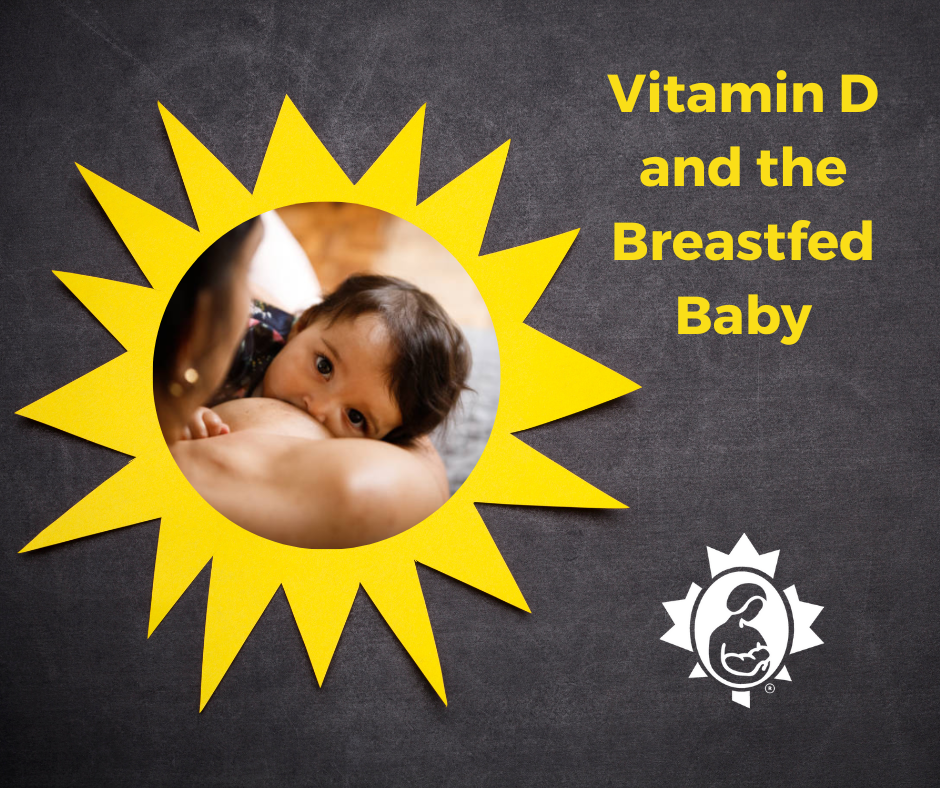
Health professionals in Canada recommend that all breastfed babies receive 400 IU of vitamin D starting the first few days after birth. This is usually given in the form of drops into the baby’s mouth. The only reason why formula fed babies do not require vitamin D drops is because vitamin D is already added to baby formula in Canada. It is important to note that human milk is not “deficient” in vitamin D, but rather it was never intended by nature to be the major source of vitamin D for babies.
Sunlight has always been the primary source of vitamin D for humans. When your skin is exposed to the sun, you make vitamin D from cholesterol in your body. People with lighter skin colours need less sunlight to make vitamin D and people with darker skin colours need more sunlight to make the same amount.
Canadians now live much farther away from the equator than humans lived thousands and thousands of years ago. Due to the angle of the sun during the winter in Canada, our bodies are not able to produce sufficient amounts of vitamin D from sunlight. Most Canadians also spend far more time indoors than we did just a few generations ago. And because of more recent concerns over skin cancer, many Canadian adults wear sunscreen, hats and special clothing to block the sun in summer and even throughout the year. This is why Canadians are advised to take vitamin D supplements from October to March.
Most adult Canadians are able to produce more than enough vitamin D from sunlight between the months of April and September with reasonable amounts of sunlight and supplementation, if it is needed. Unfortunately, the sun can damage your baby’s sensitive skin. Babies under six months of age should be kept out of direct sunlight.
Your milk does provide your baby with vitamin D, just not enough to make up for the lack of sunlight. However, if you are deficient in vitamin D you cannot pass it on to your baby through the placenta or your milk. Because of this, Canadian health professionals recommend that babies be given 400 IU of vitamin D daily. Being deficient in Vitamin D can cause serious health problems for babies.
So, enjoy breastfeeding your baby and add 400 IU of a daily vitamin D drop. That’s all your baby needs to eat for the first six months of life.
Studies have shown that it is possible for nursing women to increase their own intake of vitamin D sufficiently to meet their baby's vitamin D requirements through their milk. The daily intake of vitamin D required to achieve this is higher than the currently recommended safe upper limit. If you'd like to consider increasing your own vitamin D intake instead of supplementing your baby, it's important to first consult your healthcare provider. You can share with your healthcare provider the link to the Academy of Breastfeeding Medicine's vitamin D protocol listed in the references below.
References:
Academy of Breastfeeding Medicine and Taylor, Sarah, N. (2018, November 6). ABM Clinical Protocol #29: Iron, Zinc, and Vitamin D Supplementation During Breastfeeding.
Health Canada. (2023, November 3). Breastfeeding your baby.
